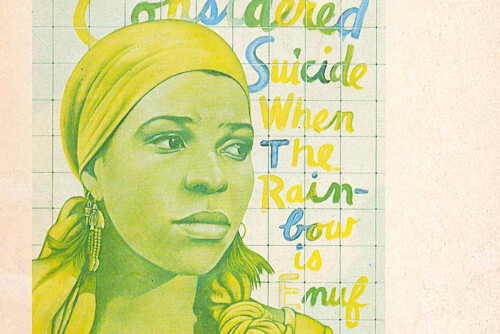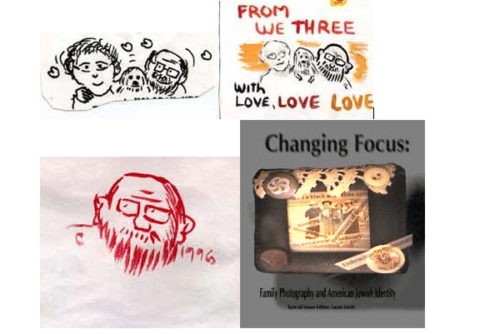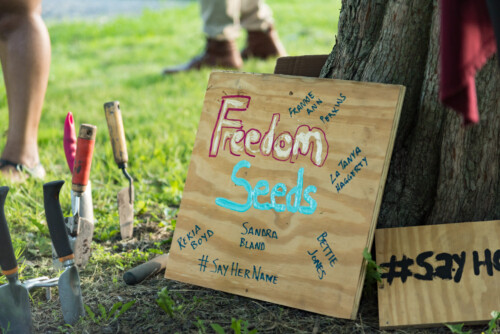sound falls round me like rain on other folks
i live in music
The magic child Indigo—with the moon in her mouth—is a consort of the spirits; she learns to allow them to speak to and through her, especially through her music-making. She is a fiddler. When her Uncle John makes Indigo a gift of a fiddle he tells her: “When them slaves was ourselves & we couldn’t talk free, or walk free, who ya think be doin’ our talkin’ for us?” His answer is a poem: words made music.
Them whites what owned slaves took everythin’ and was ourselves & didn’t even keep it fo’ they own selves. Just threw it on away, ya heah. Took them drums what they could, but they couldn’t take our feet. Took them languages that we speak. Took off wit our spirits & left us wit they Son. But the fiddle was the talking one. The fiddle be callin’ our gods what left us/be givin back some devilment & hope in our bodies worn down & lonely over these fields & kitchens. Why white folks so dumb they was thinkin’ that is we didn’t have nothing of our own, they could come controllin’, meddlin’, whippin’ our sense on outta us. But the Colored smart, ya see. The Colored got some wits to em you & me, we ain’t the onliest ones be talkin’ with the unreal. What ya think music is, whatchu think the blues be, & them get happy church musics is about, but talkin’ with the unreal what’s mo‘ real than most folks ever gonna know. (emphasis added) 7
Internal rhyme links feet and speak, and in doing so, demonstrates the relationship between the elimination of physical mobility and the elimination of linguistic and imaginative mobility of language. “Colored smart you see”/“colored got wits to em you and me” joins Uncle John and Indigo to the enslaved ancestors. The rhyme of “Son” and “one”: the divine in Christianity is the Son (Jesus), but the fiddle is the one. The instrument (like Archie Shepp’s horn) provides access to the divine. The music speaks the unspoken, speaks what the enslaved could not say, expresses the reality of their existence and their longings and aspirations. Indigo first learns to let the fiddle speak her own concerns: “Whenever she wanted to pray, she let her fiddle talk. Whenever she was angry, here came the fiddle. All the different ways of handling a violin & bow came to Indigo as she needed.” 8
Eventually the community says, “Too much of the Holy Ghost came out of Indigo & that fiddle.” 9 She is too involved in the spirit world and in the misery and weightiness of her people’s history. Fearing that she “was dwelling dangerous on the misery of the slaves who were ourselves,” Uncle John sends her “toward the beauty of this world & the joys of those who came before.” 10 So, like Abbey Lincoln, Indigo learns to listen to the sparrows and the wrens and she “mimick[s] the jays & peckers.” 11 Music allows her to converse with nature, and nature takes her to the realms of the spirits. Shange tells us “No creature that moved escaped Indigo’s attention. If the fiddle talked, it also rumbled, cawed, rustled, screamed, sighed, sirened, giggled, stomped, and sneered….” Before long, she can look at those around her, put her soul in theirs and pull out “the most lovely moment in [their lives] and play that…You could tell from looking that as Indigo let notes fly from the fiddle, that man’s scar wasn’t quite so ugly; …the slaves who were ourselves aided Indigo’s mission, connecting soul & song, experience and unremembered rhythms.” 12
Although she uses the fiddle to express her feelings, to commune with the ancestors, to play what she hears in the natural world, and, ultimately, to lend beauty and healing, though she “plays from the heart,” her mother and the extended family of her community “let her be,” even as they cringe at the sound of her playing. The teachers she needs find her. There is Pretty Man, who sends his woman Mabel to buy records for the magic girl/child—Bartok Violin Concerto #2, Ray Nance, Stephane Grappelli and Bach. Pretty Man tells her to listen closely and then play what she hears. Through Indigo, Shange gives us a pedagogy for the gifted child:
- Play free, consort with the spirits, play from the heart.
- Converse with the birds, play what you hear in the natural world but also what you see.
- Listen and learn to play by ear.
Eventually, “Pretty Man called everything from Bach to Ellington inside of one tune,” and the girl fiddler rises to the occasion.
Through Indigo, Shange reminds us of the centrality of black music to black aspirations for freedom. Furthermore, she insists that the artist must commune with ancestral spirits but cannot remain among them. She must also engage the transcendent beauty of the natural world and the tradition of her instrument. Finally, Shange demonstrates the necessity of discipline of practice.
Through Indigo, Shange sends readers on a quest for the fiddle and for the fiddlers. Historically, we lost a sense of the centrality of this string instrument to African American culture. Certainly fiddles were important in early jazz, but even before that many of the enslaved played the fiddle. In fact, Miles Davis came from a line of enslaved string musicians on his father’s side. Advertisements for runaway slaves indicate that many of them were fiddlers. The WPA slave narratives of a runaway, fugitive, and fiddler mention that he lived in a cave near a plantation and would come out and play for his enslaved brothers and sisters at their dances. They, in turn, provided him with food. So, there is a relationship between these musicians—these fiddlers—and the love and quest for freedom that seem to have characterized many of them.
The curious reader on a quest might discover extraordinary finds: India, Cooke, Regina Carter, Akua Dixon, John Blake, the late Marline Rice and Billie Bang, as well as the groups Quartet Indigo and the Uptown String Quartet. Here dwell the freedom-loving, freedom-singing notes of Indigo and the fugitive fiddlers of long ago. In another context, Shange wrote of the late Billy Bang: “the energy he is able to generate in this instrument that has struggled so hard for its voice in the jazz arena is startling, unnerving and reassuring simultaneously.” 13
- Ntozake Shange. Sassafrass, Cypress & Indigo: A Novel. (New York: St. Martin’s, 1982) 27.[↑]
- Shange, Sassafrass 1982: 33.[↑]
- Shange, Sassafrass 1982: 35.[↑]
- Shange, Sassafrass 1982: 96.[↑]
- Abbey Lincoln, “Learning How to Listen,” Wholly Earth, Universal, 1999.[↑]
- Shange Sassafrass 1982: 45.[↑]
- Ntozake Shange, “bang on!” lost in language & sound: or how I found my way to the arts (New York: St. Marks, 2011) 75. Originally published as liner notes for Billiy Bang, Bang On, Just in Time Records, 1997.[↑]


